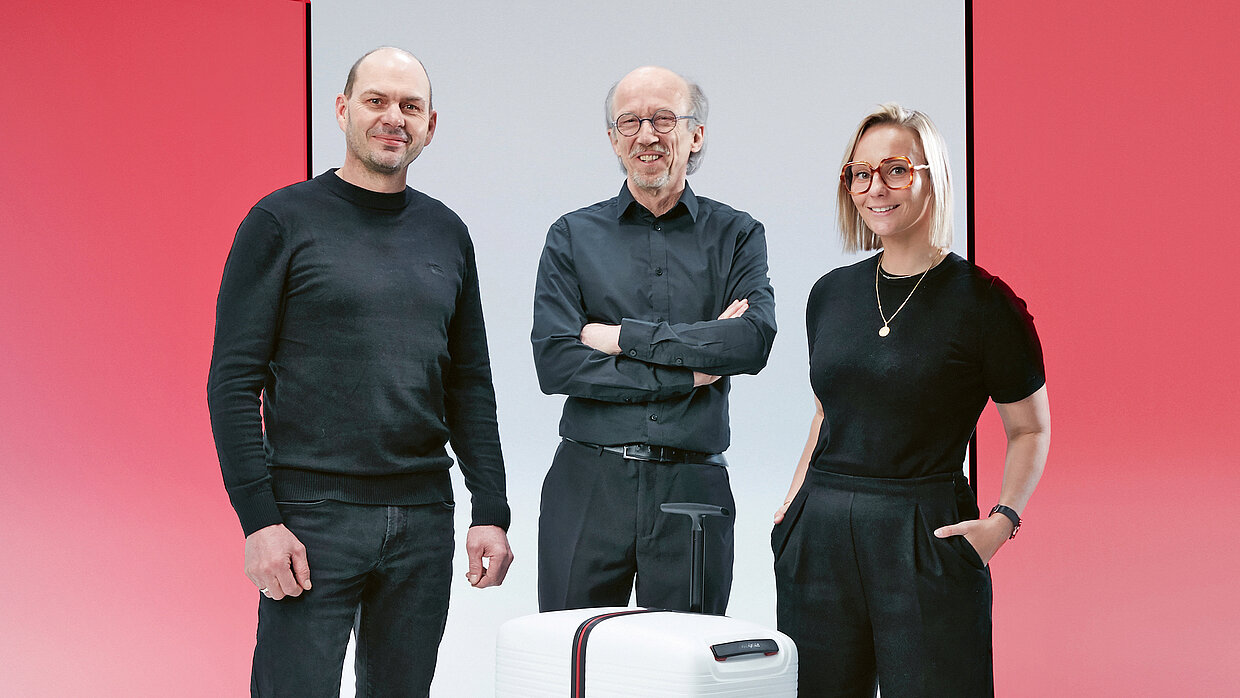
Samsonite Design &

Red Dot: Which three adjectives would you use to describe the perfect chair?
Philippe Starck: A chair is the most difficult thing a product designer can create. It requires incredible precision – being off by even a single millimetre can ruin everything. That’s why there are so many poorly designed chairs and so few that have stood the test of time. You have to consider countless parameters simultaneously and design them with intelligence and grace. Three adjectives? Harmonious, timeless, magical.
What significant currents are presently impacting product design?
Consumer society, advertising and marketing are driving us towards “hypertemporality” – in other words, trends. This needs to stop. We must surround ourselves with timeless, durable and high-quality products, especially when we consider the ecological crisis we’re in. Fortunately, we’re on the path to dematerialisation: less materiality, better performance, greater intelligence. Products dematerialise over time, like the computer that began as a building, turned into a house, then into a wardrobe, a large suitcase, a small suitcase, an envelope, a credit card, and tomorrow it might be small enough to be implanted under the skin. As consumers, we need to think twice before making a purchase. We have to ask ourselves whether we really need this item. If so, we must choose a timeless model like Eleganza, made from the right material that lasts a long time.
Is timeless design thus more important than ever?
Timelessness, longevity and transferability are the key words. When you design a piece of furniture like the Louis Ghost, which, 20 years later, is still number one worldwide, you know you’ve done your job well. If what we do isn’t sustainable, then there is no movement, no future, no design, no life. Sustainability isn’t a choice, it’s an obligation. It’s our duty.